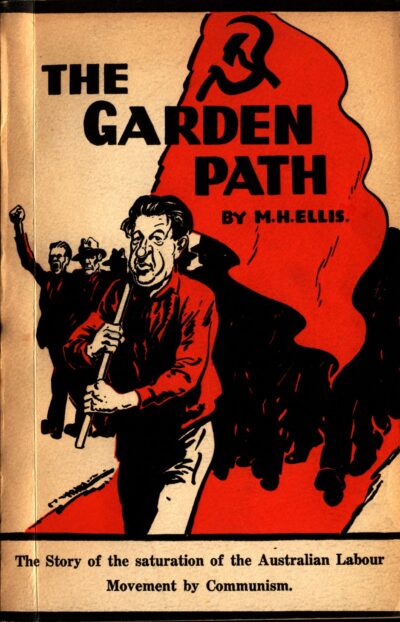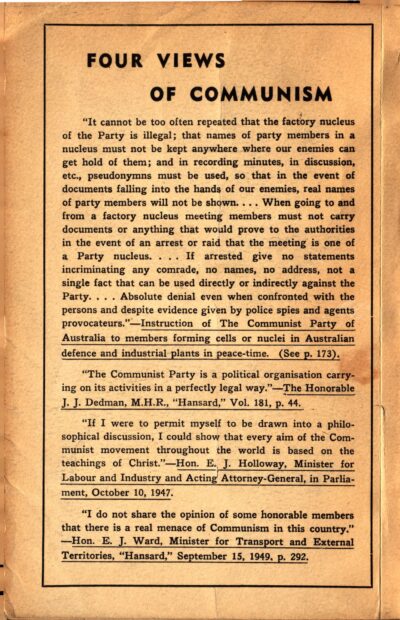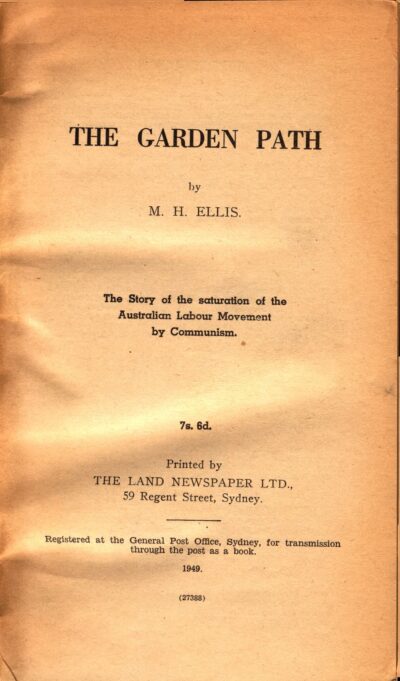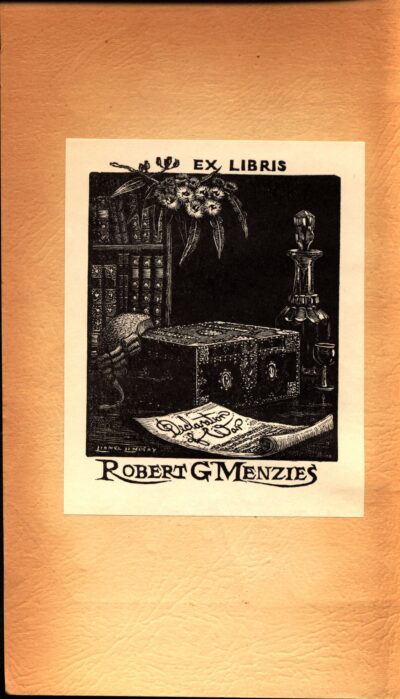Anthony Eden, The Memoirs of Sir Anthony Eden: Full Circle (1960)
Anthony Eden was the Prime Minister of Great Britain during the Suez Crisis of 1956, who recruited Menzies to become head of a delegation which unsuccessfully entreated with Egyptian President Nasser over his nationalisation of the Suez Canal. The crisis and subsequent British and French invasion turned into a humiliation for Britain, who had to back down when they were denied American support, demonstrating that they were no longer a global power in their own right.
Born to an aristocratic family in 1897, Eden attended Eton College and served on the Western Front in the Great War – a conflict in which several of his family members lost their lives. Earning a military cross for braving great danger to bring a wounded man back from no man’s land, after the war he studied oriental languages at Oxford and briefly returned to the army before embarking on a political career.
Elected as a Member of the Conservative Party in 1923, Eden rose quite rapidly to prominence and became Foreign Affairs Minister in 1931 as part of Ramsay MacDonald’s National Government formed to see Great Britain through the Depression. In 1935 he became Foreign Secretary, but ultimately resigned from Neville Chamberlain’s Government in 1938 as a protest over ‘appeasement’. This forever earned him the esteem of Winston Churchill, whom he served under throughout the war, before becoming deputy leader of the Conservative Party in 1945. When Churchill finally retired in April 1955, Eden succeeded him as Prime Minister, comfortably winning the 1955 general election with a landslide majority.
Menzies had gotten to know Eden quite well when they both attended meetings of Churchill’s War Cabinet in 1941, and they would be forever linked by their mutual involvement in Suez. The difference was that Suez all but took Eden’s political scalp by precipitating his retirement on medical grounds, whereas Menzies was able to survive the setback with little long-term effect.
Gifted to Menzies with the simple inscription, ‘To Bob from Anthony with gratitude. February 1960’, Menzies’s copy of Full Circle is notable for its insights into the relationship between the two men and how this contributed to the course of momentous events:
‘In the days before the London Conference met, Mr. Menzies, the Prime Minister of Australia, joined us. When the Suez crisis began, he had been in the United States and was about to pay a visit to Japan and the Far East. The gravity of events was not lost upon him and he cancelled his tour. When he told me of his decision, I at once invited him to join us in London and take part in our councils. He generously consented to do so. We could not have had a wiser or more forthright colleague.
I had first met Bob Menzies in 1935 when he was Attorney- General and I came to know him well in the dark days of 1941, perhaps the worst period of the second world war. I had come back from the Middle East, where I had taken a prominent part in difficult decisions about the Greek campaign. Events have since proved that our decisions were right, but at the time they were much criticized. Since Australia made a generous contribution to the military operation, it was inevitable that some of the blame should fall, albeit unjustly, upon Mr. Menzies, who was the Commonwealth Prime Minister. He was himself in London during part of the time when the decisions were taken. I admired his courage then for endorsing what he believed to be right. He stood by it, even when he was involved in some obloquy at home, and lost a general election.
I remember that when I arrived back in London from Cairo and attended my first Cabinet, I found Menzies sitting next to me. He passed a note, “This is the strangest Cabinet I ever sat in. Since you have been away I have only heard one voice. Do none of them ever speak up?” I explained to him afterwards how the technique worked. The War Cabinet did not wish to be immersed in the details of military operations. Whatever the Prime Minister had to say on these topics, which sometimes filled the greater part of our discussions, was not usually commented upon then, because it was the Defence Committee which handled those affairs.
Later I had been Menzies’ guest in Australia when he was Leader of the Opposition and I was also out of office. Our friendship had grown through the years and I felt a deep affection both for him and his charming family. Menzies shows his legal training in the lucidity of his mind and a penetrating intelligence. His statesmanship is something more. He has an instinct for great affairs and he cannot tolerate humbug.
When Menzies came to London at this critical time, I gained an immense reinforcement from his knowledge and experience. “It is lonely at the top,” as Stanley Baldwin used to say. There are political colleagues with whom one has been through the toughest experiences. This was true of Lord Salisbury, and also of Oliver Lyttelton, who was a member of the War Cabinet and the Defence Committee for long periods during my service there. It was true more especially of my relations with Sir Winston Churchill. Now, at this sharp testing time for myself, it was good to be able to sit down and assess the problems with Mr. Menzies. We had been through this kind of thing together before.’
You might also like...
Sign up to our newsletter
Sign up for our monthly newsletter to hear the latest news and receive information about upcoming events.






